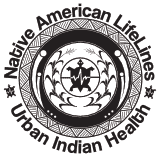
Project information
In partnership with Native American LifeLines of Baltimore and Boston, this project seeks to improve HIV education, testing, prevention, and treatment within urban Native American communities in through cultural and community engagement. The goal of the project is to build on previous research conducted by Native American LifeLines along with the inherent protective factors of Native cultural values to optimize community-based services and approaches to HIV education. We hope the results of the study will improve access to HIV testing, linkage to care, and PrEP counseling/uptake among urban Natives.
Specific aims include: 1) Identify barriers to and facilitators of engagement in HIV prevention and treatment with a focus on HIV education, HIV testing, linkage to HIV care, and initiation of PrEP; 2) Map barriers and facilitators to implementation strategies to improve HIV prevention and care among Urban NAs in Baltimore City and Suffolk County; 3) Pilot and refine the implementation strategy identified in Aim 2 for use in a subsequent trial. Interviews and focus group discussions with community members and stakeholders will be utilized to inform Aims 1 and 2. The implementation strategy “Plan-Do-Study-Act” will be used for Aim 3. This two-year project will provide a platform to engage other Urban Native American-serving organizations to evaluate the community-oriented strategy to increase engagement in HIV services among NA clients.